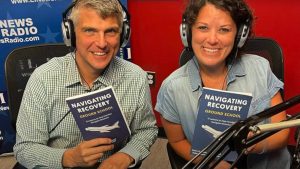
May
The Ivy Cocktail League did more harm compared to the good it was supposed to provide. May’s friends were worried about her. The group of five had been close all through college and were now in their early thirties, all with stable careers and just beginning the stage of starting their families. Years ago, May had been working at a tech company and seemed to be at the beginning on a promising career, but now she was unemployed and living at home.
May’s friends said that in her college days she was popular, outgoing, and liked to party. On our first call, one of the friends acknowledged that May had been on Adderall all throughout college. She also added that may occasionally took Klonopin for anxiety and insomnia.
All of May’s friends had stories about her asking them for Adderall. Recently, May even offered one friend $20 per pill. This was a great clue for me about May’s state for mind if she wasn’t working, but felt that Adderall was worth $20 per pill. That showed signs of an advanced addiction.
Case Study: The Ivy League Cocktail
Adderall and Klonopin are what I call the “Ivy Leage Cocktail.” Children of the 2000s were freely prescribed Adderall, and for many kids it became acceptable for swap or sell ADHD medications in high school. As those students progressed through demanding colleges, Adderall was often used as a performance enhancing medication. However, Adderall also comes with a hard crash, and soon it becomes necessary to take more and more every day to avoid this crash and feel normal. At this level of use, anxiety increases and it becomes hard to sleep. The fix for those side effects is a benzodiazepine like Klonopin. Over time, that too becomes less effective. People start increasing their dose of the substance.
May began her career at a hard-charging tech start up. It was a difficult job to get, but at a quality company that matched the quality of her college. Her hours were long and stressful and the job was very demanding. May continued to use Adderall at her job, which was common among the other young people at her company. They even traded pills just like May had back in high school and college.
Dropping Out
May became very unhappy. She didn’t realize how much Adderall she was taking and she had to drink to calm down. She began to feel increasingly sick and depressed. Her performance at work declined, she lost her temper easily, and she began to miss work. As she became more and more depressed and missed more and more work, she quit to avoid being fired and had no choice but to move back home.
People who struggle with prescription medication often don’t realize that the medication is the cause for the problem. Often, if you mention it to them, they defend the prescription and the doctor who prescribed it. However, when we look at how they actually get the medications, often they’re seeking doctors known to be generous with certain medications or lying to a doctor about their symptoms.
Recognizing the Problem
When people are prescribed something by a doctor, they can experience strong denial about addiction. How could it be dangerous when I picked up at CVS? Someone who has been on Adderall for a long time may be easily agitated. Particularly, when someone suggests they may have an addiction. They don’t see that they need more and more Adderall to function and that Klonopin is necessary to treat the high levels of anxiety.
Eventually, May’s friends organized an intervention. They reached out to May’s mother with their concerns; she knew that something was wrong but had no idea what it was.
Detoxification from high levels of benzodiazepines is very difficult and it takes a very long time to do comfortably. May admitted, eventually, to be totally broken and even considering suicide. She initially reacted with anger towards her friends, but we stuck with her over a period of time as she tried several times to quit on her own. After a few weeks, May reached out for help and chose to go to an inpatient treatment center.
About Adam Banks
Adam Banks is a certified interventionist and the owner of Adam Banks Recovery. After receiving an MBA from the University of Chicago, Adam built a company that was later acquired by United Health Care. His discipline and attention to detail comes from his former career as an airline pilot, holding an ATP, the FAA’s highest license.
Today, Adam is dedicated to helping others achieve long-term sobriety. His work has guided executives, pilots, and physicians on paths to recovery. Adam brings families together through a loving and inclusive approach.
Adam has authored four books on addiction. His recent work, Navigating Recovery Ground School: 12 Lessons to Help Families Navigate Recovery, educates families on the entire intervention process. He also offers a free video course for families considering an intervention for a loved one.
Adam is available for alcohol and drug intervention services in New York, Long Island, the Hamptons as well as nationally and internationally.




